The 80-20 rule. Have you heard of it? Before starting a screenplay, read on because the 80-20 rule can revolutionize your approach to screenplay writing.
If you’re not familiar with the rule, it’s pretty simple: 20% of your efforts yield 80% of your results. The reverse is also true. 80% of your efforts will only lead to 20% of your results.
Some examples:
20% of pea pods in a garden will contain 80% of the peas
20% of a year’s movie releases will yield 80% of the box office total
And now an example most specific to you the aspiring screenwriter:
20% of the time you spend writing will yield 80% of your good, workable pages
Using the 80-20 rule to your advantage before starting a screenplay
There are different ways of applying the 80-20 rule to your screenwriting adventure. Below are 5 ways which should help you rethink the way you approach screenplay writing. (By the way, the 80-20 rule is also known as the Pareto Principle.)
Outline more before you start writing
Some screenwriters avoid outlining at all costs. They like to write by the seat of their pants, seeing where the story takes them. Personally, I think that’s a big mistake.
Planning how you’re going to write your screenplay–especially its structure–is a huge component of the writing time that will yield 80% of your screenplay pages. Think about this the next time you get a great high-concept idea. Instead of rushing to write the entire screenplay, take time to:
- generate ideas for the major plot points
- think about subplots and how they intersect with your major plot
- develop character arcs and character backstories
In a nutshell: if 20% of effort leads to 80% of your results, make sure some of that 20% includes outlining.
Research less
Aspiring screenwriters tend to overdo their research. I can understand why. It’s the perfect procrastination tool. You’re not writing, but you’re still doing work that will help you with starting your screenplay…or so you tell yourself.
But if we apply the 80-20 rule, 20% of your research will add to and enhance your screenplay, while the rest will be relegated to cocktail party chitter-chatter.
When I’m doing research for my own projects, I usually find two or three really great resources that are goldmines of fascinating details. These details add texture to the story and make my screenplay seem like real life instead of fiction.
But even after my wonderful discovery, I keep researching because I haven’t learned everything I think I need to know before I begin writing a particular scene.
But I’m going to start applying the 80-20 rule to my research. My goldmine resources–sometimes they’re books, sometimes they’re blog & magazine articles–will likely yield 80% of the information I truly need for my screenplay. Once I’ve found them, I’m going to STOP researching and start writing. After I finish my first draft, I can resume researching to fill in the details I still need.
Formatting a screenplay & the 80-20 rule
The 80-20 rule can even be applied to screenplay format. Before starting a screenplay, analyze your idea. Is it more likely to be a “talky picture” like When Harry Meets Sally? Then before you start writing your scenes, spend time strengthening your dialogue writing skills.
Is your screenplay more action-heavy like the Bourne trilogy? Then you need to focus on writing clear, vivid & concise action/description paragraphs. Before you start your screenplay, spend time honing these skills.
This simple tip should skim a hefty chunk of rewriting time!
Your muse takes a lot of vacation days
Don’t beat yourself up if you have a bad writing day. 4/5 of your screenwriting days are likely to be uninspired and unproductive. But that’s okay–those days are greasing the wheels for that 5th day when the words flow like a smooth cabernet. That being said…
When your muse does make her visit, make sure you’re ready for her!
- Keep a spare ink cartridge and a ream of paper among your office supplies
- All those notes from your outline? Keep them organized and accessible
- Don’t assume your muse will stop for a chat when you’re near the computer. ALWAYS have paper and a pen with you. (I wouldn’t rely on your super-small-all-purpose mobile device, but that’s just me.)
Write 5 screenplays before trying to sell 1
Admittedly, this bit of advice is a little depressing, because you want your screenplay to hit the market as fast as possible. Everyone wants to believe they have the next seven-figure spec sale. But if we extend the 80-20 rule to its logical conclusion, it’s wiser to hold off trying to sell your screenplay until you have four more. Why?
20% of pre-professional work (i.e. 1 out of 5 screenplays) now will yield 80% of writing assignments in the future–aka the big break.
So try to be pleased when you complete your first screenplay…and your second…and third…Each draft is a worthy achievement, in and of, itself. Try not to equate screenwriting success with $$$, with the understanding that you DO deserve to be paid for your work. And you will be too, if you finish those 5 screenplays!
As you can see, it’s a good idea to understand the 80-20 rule before starting a screenplay. Agree? Disagree? Sound off below!
Spanish Gates by tvquiero
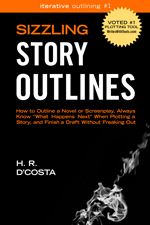










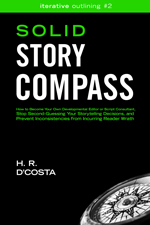
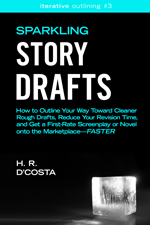

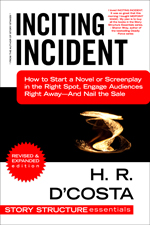
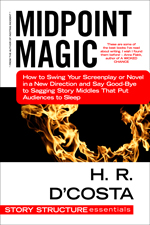


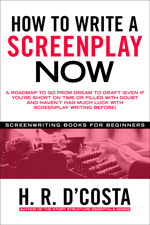
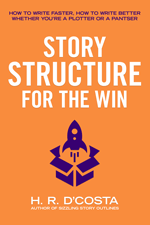

Comments on this entry are closed.
This is a great site. It’s straight forward, practical, and easy to understand. I teach television production and screenwriting at the high school and college level. I plan on using some of these ideas in class and for my own personal writing. Thanks and keep up the good work.
Hi Scott,
Thanks for commenting! I’m glad the site has been helpful for you. I hope the tips I’ve shared will be useful to your students–and for your own writing too. There are probably some topics I haven’t covered which could help your students develop their technique, so if you have any suggestions, please let me know! I’d also be interested to know which feature you’ve found to be the most useful.
Amazing site!
I’ve found countless interesting articles and now I save them on my hard drive.
Hope one day to become good screenwriter.
So far I have lots of troubles and sometimes I think my head will explode of too much thinking… and I don’t have anyone who shares my passion and can consult me on my mistakes…
But I still hope…
Hi Sultan,
Thanks so much for visiting Scribe Meets World.
“I save them on my hard drive” is one of the best compliments ever! 🙂
I can understand what you’re saying about wanting to talk to other screenwriters. Writing is a lonely profession, and it’s natural to reach out to them.
At the same time, many writers spend so much time talking about writing…that they never write!
And that’s the only way you will succeed: by keeping on writing, ideally every day. Even if it’s only a page or half a page, do your best to write daily.
So get all those ideas in your head onto paper, pick one, and write a screenplay about it. Don’t worry so much about getting it right, or the grammar, or anything — just focus on completing it done. You can fix things later.
You mentioned having troubles, so you might try this technique: complete one screenplay just for the sake of completing it. Write a second screenplay, but this time focus on both completing it and on getting the structure right. (Focusing on structure first has a good return for your investment of time). Then, using what you’ve learned, fix the structure of your first script.
Next, revise both scripts, but focus on ONE aspect of screenwriting. So the first time, you would improve your depiction of your characters; the next time you’d focus on your dialogue; and the next time, you’d focus on format.
You have to master so many elements to write a good screenplay that it can be overwhelming. By focusing on one element at a time, it becomes less stressful, and increases the odds that you will continue to write. The more you write, the better you should get. You’ll also develop more confidence in your abilities, which will help too.
One way to get the best of both worlds (talking about writing and actually writing) is to make talking about writing a reward once you’ve completed your page goal. So after your writing session, you could reward yourself by chatting with other writers on Twitter or on online forums, etc.
With passion and perseverance, you can fulfill your writing dreams. Don’t give up!
Best of luck with your screenwriting journey.